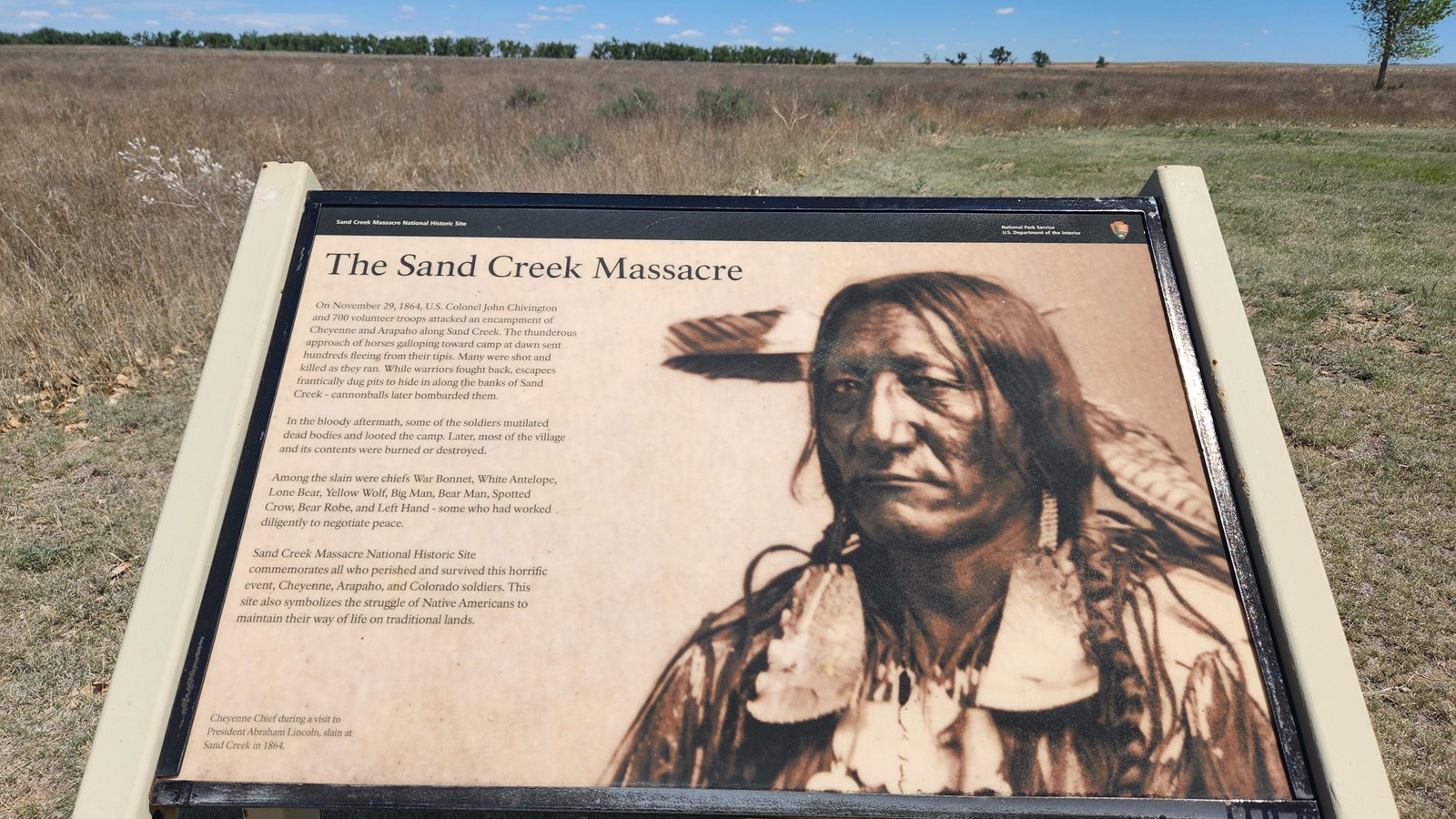Last updated: September 11, 2025
Place
Monument Hill Trailhead

NPS
Quick Facts
Amenities
2 listed
Historical/Interpretive Information/Exhibits, Trailhead
On November 29, 1864, U.S. Colonel John Chivington and 700 volunteer troops attacked an encampment of Cheyenne and Arapaho along Sand Creek. The thunderous approach of horses galloping toward camp at dawn sent hundreds fleeing from their tipis. Many were shot and killed as they ran. While warriors fought back, escapees frantically dug pits to hide in along the banks of Sand Creek - cannonballs later bombarded them.
In the bloody aftermath, some of the soldiers mutilated dead bodies and looted the camp. Later, most of the village and its contents were burned or destroyed.
Among the slain were chiefs War Bonnet, White Antelope, Lone Bear, Yellow Wolf, Big Man, Bear Man, Spotted Crow, Bear Robe, and Left Hand - some who had worked diligently to negotiate peace.
Sand Creek Massacre National Historic Site commemorates all who perished and survived this horrific event, Cheyenne, Arapaho, and Colorado Soldiers. This site also symbolizes the struggle of Native Americans to maintain their way of life on traditional lands.
In the bloody aftermath, some of the soldiers mutilated dead bodies and looted the camp. Later, most of the village and its contents were burned or destroyed.
Among the slain were chiefs War Bonnet, White Antelope, Lone Bear, Yellow Wolf, Big Man, Bear Man, Spotted Crow, Bear Robe, and Left Hand - some who had worked diligently to negotiate peace.
Sand Creek Massacre National Historic Site commemorates all who perished and survived this horrific event, Cheyenne, Arapaho, and Colorado Soldiers. This site also symbolizes the struggle of Native Americans to maintain their way of life on traditional lands.
